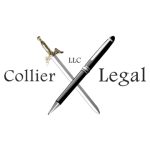Software Licensing Agreements: Overview

A software licensing agreement is a type of intellectual property licensing agreement that defines how software can be used, distributed, or modified. Whether your company develops custom software, licenses SaaS solutions, or uses third-party tools, this agreement determines your rights and obligations. Understanding the key terms protects both your business and your intellectual property.
What a Software Licensing Agreement Does
At its core, a software license is a legal contract that gives the user permission to use software under specific conditions while the developer retains ownership.
Licenses may be exclusive or non-exclusive, perpetual or term-limited, and may restrict the number of users, installations, or geographic use.
Under federal copyright law, software is treated as a literary work, granting the owner control over reproduction, distribution, and derivative works. A license defines how those rights are shared or limited. This structure applies whether the software is sold as a traditional download or provided through a SaaS platform.
If you are new to IP concepts, see The Basics of Intellectual Property Law for an overview of how copyrights, trademarks, and patents interact.
Common Types of Software Licenses
Businesses typically encounter several licensing models:
Proprietary licenses – The user receives limited rights, often prohibiting modification or redistribution.
Open-source licenses – The software can be modified and redistributed under specific conditions such as the MIT or GPL license.
SaaS subscriptions – The user accesses the software remotely through a subscription, and no copy is installed locally. These agreements emphasize uptime, data security, and termination terms.
Enterprise or OEM licenses – These allow integration into larger systems or distribution to end users.
For companies that develop or use proprietary systems, see Software Patents for how to protect the underlying code and functionality.
Key Clauses Every Agreement Should Include
Although the language may vary, several provisions are nearly universal in software licensing agreements:
Scope of use: Defines who can use the software, for what purpose, and on how many devices.
Ownership and IP rights: Clarifies that the developer retains copyright unless otherwise stated.
Payment and renewal terms: Especially critical for SaaS products billed monthly or annually.
Confidentiality and data security: Addresses how customer data is stored, accessed, and protected.
Warranties and disclaimers: Limits liability for defects or downtime.
Termination and post-termination rights: Determines what happens when the license ends, including data access and deletion.
For deeper coverage of contract provisions like indemnification and liability, see Defend, Hold Harmless, and Indemnification Agreements and Master Service Agreement: A Guide for Businesses.
In SaaS contracts, these terms often overlap with service level agreements (SLAs), which define uptime or response guarantees.
Federal and State Legal Framework
Most licensing issues fall under federal copyright and general contract principles. However, state law governs contract enforcement, including remedies for breach.
In Ohio, courts emphasize the plain meaning of contract terms. Businesses operating in Ohio should also consider how the Ohio Uniform Commercial Code (UCC) applies when software is bundled with hardware or delivered as part of a larger system.
If your transactions involve electronic contracting, both the E-SIGN Act and Ohio’s Uniform Electronic Transactions Act validate e-signatures and digital records.
You can learn more about Ohio business law requirements in Corporate Lawyer Ohio and Ohio Corporate Transparency Act: What You Need to Know.
Why SaaS Licensing Deserves Extra Attention
SaaS licensing introduces unique legal considerations. Unlike traditional software, users rarely own a copy—they access it remotely. This shifts the focus to data privacy, uptime, and termination rights.
If a provider suspends service, users may lose operational data. A sound agreement should specify:
How and when users can retrieve data
What happens during service interruptions
How confidentiality is maintained when hosted on third-party servers
For related data protection guidance, see Understanding Data Privacy Laws.
Drafting and Negotiation Tips
When drafting or reviewing a software licensing agreement, business owners should:
Identify whether the transaction involves a license or a SaaS subscription.
Clarify data ownership and retrieval rights before signing.
Review indemnity and limitation of liability clauses carefully.
Ensure governing law and jurisdiction align with your business’s location.
Confirm that the contract does not conflict with Ohio data or consumer protection laws.
Startups and technology companies can also benefit from outside legal guidance. See Technology Startups and Outside General Counsel Services for more information.
Conclusion
A well-drafted software licensing agreement safeguards your software, data, and revenue. For SaaS companies, it defines ongoing service obligations and renewal rights. Whether you are a developer, reseller, or end user, clear contractual terms protect your intellectual property and minimize legal risk under both federal and Ohio law.
To explore related IP topics, visit Intellectual Property Licensing and Software Patents, or contact Collier Legal to discuss how we can help structure agreements that align with your business goals.

About
Attorney Collier started his own law firm straight out of law school and has been practicing law in Ohio for 5+ years. During that time, Joe focused on business law and litigation, gaining some exposure to intellectual property law. While running his firm in 2021, Joe decided to go back to school and get his patent license. Since then, Attorney Collier has been focusing on protecting innovators and entrepreneurs through his expertise in intellectual property and business law.
